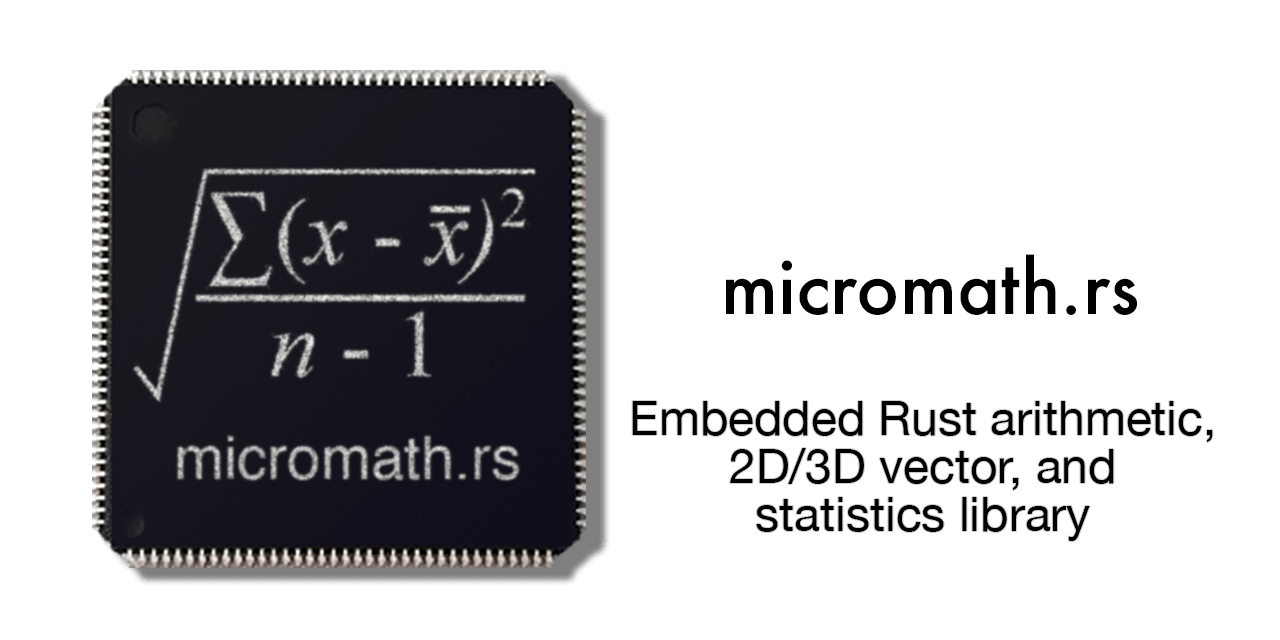Embedded-friendly (i.e. no_std) Rust math library featuring fast, safe floating point approximations for common arithmetic operations, trigonometry, 2D/3D vector types, statistical analysis, and quaternions.
Optimizes for performance and small code size at the cost of precision.
Minimum Supported Rust Version
Requires Rust 1.47 or newer.
SemVer Policy
We reserve the right to change the following in future releases with a minor version bump only:
- MSRV
num-traitsversion (optional dependency)
Features
Code of Conduct
We abide by the Contributor Covenant and ask that you do as well.
For more information, please see CODE_OF_CONDUCT.md.
License
Copyright © 2019-2021 Tony Arcieri
Dual licensed under your choice of either of:
- Apache License, Version 2.0, (LICENSE-APACHE or http://www.apache.org/licenses/LICENSE-2.0)
- MIT license (LICENSE-MIT or http://opensource.org/licenses/MIT)
Incorporates portions of some tests from the libm crate. Copyright © 2018 Jorge Aparicio and also dual licensed under the Apache 2.0 and MIT licenses.




